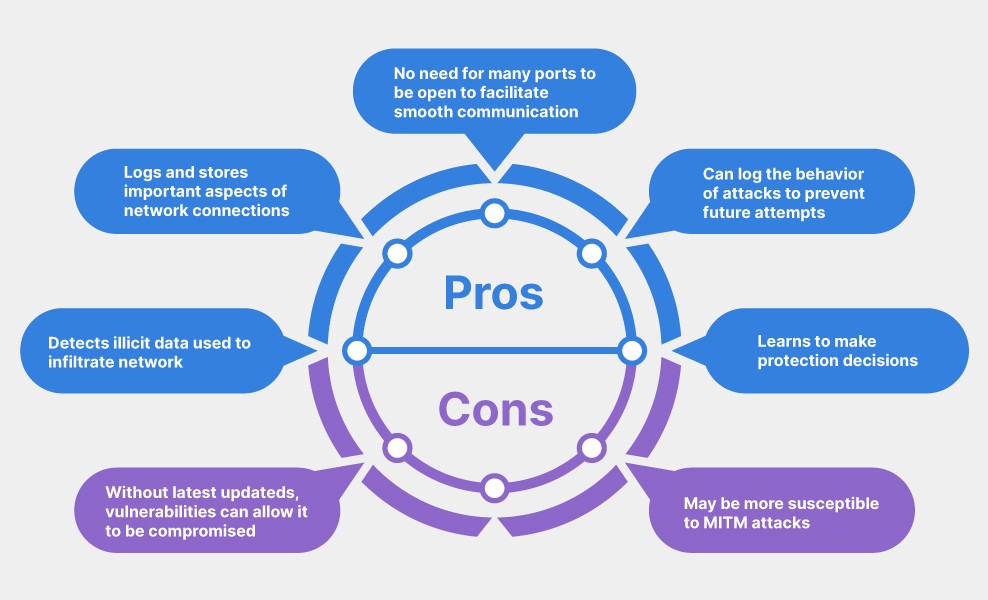Table of Contents
Firewalls play a critical role in community safety by tracking and controlling incoming and outgoing traffic. Among the numerous sorts of firewalls, stateful and stateless firewalls are regularly in comparison due to their distinct tactics to handling visitors. While each sorts make a contribution substantially to safeguarding a community, they feature pretty differently. Therefore, it’s vital to recognize these variations to make an informed desire when designing a network security method Security Concepts.
What is a Firewall?
A firewall is a network security device or software program designed to dam or allow site visitors based on predetermined safety policies. It acts as a barrier between inner networks and untrusted external networks, just like the internet, thereby protective sensitive records and structures. Transitioning to the two essential varieties of firewalls, we’ve stateful and stateless firewalls, every offering a unique approach of visitors filtering.
Stateful Firewall
Stateful firewalls are more advanced and dynamic of their operation. They tune the state of lively connections and make decisions based on the context of traffic. This method that instead of looking at man or woman packets in isolation, a stateful firewall remembers previously allowed or denied packets, allowing more clever traffic filtering.
Moreover, a stateful firewall inspects the entire statistics flow of a consultation, making it ideal for environments where steady security throughout diverse layers of conversation is paramount.
How Stateful Firewalls Work
Stateful firewalls monitor the whole lifecycle of a connection, such as its initiation, period, and termination. By doing so, they recognize whether or not an incoming packet is a part of an established connection or a capability hazard. For example, if a packet is acquired that does not in shape any connection in its kingdom desk, the firewall will block it. Therefore, stateful firewalls are incredibly secure because they allow for non-stop traffic inspection, allowing them to discover and save you threats greater successfully.
In assessment, stateless firewalls operate based totally on predefined regulations without thinking about the state of connections. They clear out each packet individually, treating it as an independent entity with out connection with its courting with preceding packets.
Because they don’t maintain the nation of a connection, stateless firewalls are frequently considered faster, however they’re not as thorough in identifying threats, making them greater vulnerable to state-of-the-art assaults like spoofing or session hijacking.
How Stateless Firewalls Work stateful and stateless firewall
A stateless firewall follows simple rule-based filtering, where each packet is checked in opposition to unique criteria along with supply IP, destination IP, port numbers, and protocol type. If the packet meets those standards, it’s far either allowed or denied. However, stateless firewalls lack the capacity to recognize if a packet belongs to an present, valid connection, that may doubtlessly allow positive assaults to pass the firewall.
Key Differences Between Stateful and Stateless Firewalls
To further elaborate, permit’s spoil down the crucial differences among stateful and stateless firewalls:
Connection Tracking: Stateful firewalls keep song of connections, while stateless firewalls do not. This makes stateful firewalls greater intelligent in coping with traffic.
Performance: Stateless firewalls typically carry out quicker considering they do not need to music the kingdom of connections. However, the alternate-off is decreased protection.
Security: Stateful firewalls provide extra strong safety with the aid of analyzing the whole verbal exchange consultation. Stateless firewalls, even as less difficult, can pass over positive kinds of attacks.
Resource Usage: Stateful firewalls require extra resources because of the want for retaining connection states. On the opposite hand, stateless firewalls are much less useful resource-extensive, making them best for smaller networks.
Which One Should You Choose?
When determining between stateful and stateless firewalls, it largely relies upon at the desires of your network. For excessive-protection environments in which consistent monitoring of communique is essential, a stateful firewall can be extra appropriate. On the alternative hand, for smaller, less complicated networks in which overall performance is a higher precedence, a stateless firewall may additionally suffice.
Additionally, agencies can choose to enforce both styles of firewalls relying on their specific network segments and protection necessities. For example, the usage of a stateless firewall for much less critical traffic and a stateful firewall for sensitive facts can offer a balanced technique to security and overall performance. stateful and stateless firewall
Conclusion
In summary, stateful and stateless firewalls each offer particular benefits and demanding situations. Understanding how those firewalls operate helps corporations make better protection selections. Therefore, through choosing the best firewall to your network, you can strike the precise balance between protection and performance, accordingly ensuring comprehensive safety of your community infrastructure. stateful and stateless firewall


